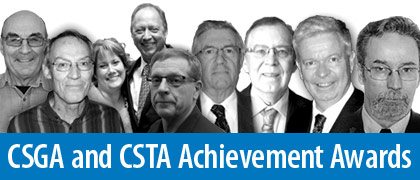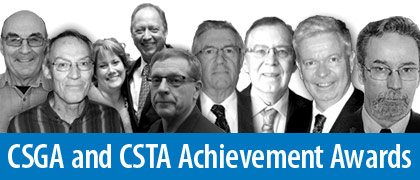
Canadian Seed Growers’ Association and Canadian Seed Trade Association Achievement Awards
CSGA Award Winners
Robertson Associate Awards
Rodney Altwasser
Altwasser became one of the early producers of lentils in Saskatchewan and processed and bagged lentils for export for a few years. Since then, Altwasswer’s two sons, Allen and Dean, have returned home to the farm after graduating from the University of Saskatchewan. They’ve built a new seed cleaning plant along Highway 39 and Super Seed Inc. was opened. A year later, a Phase 3 chemical warehouse was added.
Today, Allen manages Super Seed Inc, which processes seed for wholesale and retail sales, and Dean manages Beautiful Plain Farm Ltd., which grows and produces seed and commercial grain. Altwasser is still very involved in both companies.
Additionally, Altwasswer has been involved with the Palliser Wheat Growers, which later became the Western Canadian Wheat Growers Association, the Saskatchewan Flax Growers and Saskatchewan Pulse Growers.
Glen Laxdal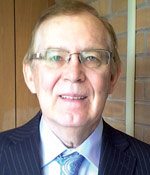
From 1991 to 1995, Laxdal served on the Saskatchewan Seed Growers board. In 1992, he played a key role in forming Midwest Grain Co., based in Yorkton, and served as vice-president on the bard until Laxdal and his partners sold their shares. Midwest Grain purchased and exported Canadian pulses and oilseeds worldwide.
Laxdal was insttrumental in starting Lakeside Processors Limited in 1992, a large export pulse cleaning facility in Dafoe, as a joint venture with Saskatchewan Wheat Pool. He served on the board as president and vice-president. In 1995, Laxdal was involved in the creation of Lakeside Pulses and Special Crops Ltd., which purchased and exported Canadian grain worldwide. He served as vice-president and was in charge of mustard and oilseed exports.
Then, in 2005, Laxdal helped negotiate the buyout of all Saskatchewan Wheat Pool shares in Lakeside Processors Ltd, and the following year he was involved in the formation of Lakeside Global Grains Ltd., which joined Lakeside Processors Ltd. and Lakeside Pulse and Special Crops Ltd. Laxdal served as vice-president until the company was sold to Broadgrain Ltd. from Ontario in 2011.
Today, he is a member of the Board of Directors for Avena Foods, and serves on the Finance and Capital committees.
John and Lisa Huvenaars
In 1989 they attended what ended up being a very expensive Seed and Grain Technology workshop in Olds. Following that workshop, a decision to commit to the seed business was made by building a seed cleaning plant on the farm as well as a complete seed loading and treating system. At that time John‘s parents and brother joined the business and Huvenaars Seed Farms Ltd. was formed. John and Lisa were married in 1984.
She was a town girl but her people and retail skills, learned from her parents’ business, truly contribute to getting and maintaining a loyal customer base. Lisa is the voice of seed knowledge on the phone and the person customers see as she loads their seed. When not attending meetings herself, Lisa holds things together at home so John can crisscross the country fulfilling his obligations to the many boards he served on.
Both John and Lisa have run the gamut of local school, hall, curling, church, producer commissions and Co-op Seed Plant boards. Seed industry activity included nine years as director and chair of ASGA, eight years as director and vice chair of SeCan Association and six years as director and chair of SeedNet Inc. John and Lisa recently received Long Service Certificates for 35 years and 25 years respectively. They received the Outstanding Service Award from Alberta Seed Growers Association in 2008.
Their greatest seeds of success are son Mark, who recently completed his MBA and is working in Vancouver for Slingshot Advertising, and daughter Carly married to Cam Hazell of Taber, AB. Carly has a BSc-Ag and is a Hybrid Canola Production Specialist for CPS. Cam works as a pharmacist but is always ready to help during seeding and harvest.
Honorary Life Award
Mike McAvoy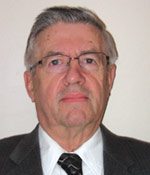
He was also a member of the CSGA Executive Committee from 2000 to 2008. During that time, he served as an advisor to the Board of the Saskatchewan Seed Growers’ Association, and was awarded an SSGA Honorary Life Membership in 2001. McAvoy served as the secretary of the University of Saskatchewan Crop Development Centre in the 1990s and was co-chairman of CSGA’s 2000 meeting, held in Saskatoon.
“The many crop-related issues coming to the board tables made those 12 years an interesting and rewarding part of my career,” McAvoy says. “It also provided me the opportunity to meet many people involved in the seed industry from all across the country.”
David Gehl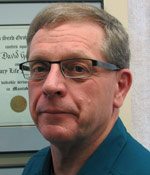
“There have been many challenges over the years but problem solving is part of the business and makes the job more interesting,” Gehl says. “I’m foturnate to be part of a team deliving new crop varieties to Canadian farmers.”
In addition to his duties for Breeder Seed production, Gehl coordinates plant breeding winter nursery activities for Agriculture and Agri-Food Canada. For many years the Seed Increase Unit operated a winter nursery at Brawley, California, which was used by AAFC and other Canadian public sector plant breeders.
Ken Stoner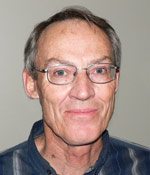
When Svalof of Sweden purchased the company, Stoner became a plant breeder’s assistant and was later named assistant managing director. In 1999, Stoner began working for CSI assisting facilties to process, import and test pedigreed seed.
During his career, Stoner has been active in industry and professional associations. He served on CSTA’s Forage Seed Committee for a number of years. Provincially, Stoner served on the Saskatchewan Forage Advisory Committee. Federally, he served on the Expert Committee for Forage Crops. Stoner was also involved with the formation of the Saskatchewan Forage Council and served as chair for several years.
Taking an active interest in his profession of agrology, Stoner served on branch and provincial councils in many positions including president of the local branch and provincial council of the Saskatchewan Institute of Agrologist. Within the community of Nipawin, he was a member of the Nipawin and District Chamber of Commerce, serving as president and on the board of the Nipawin Evergreen Centre.
CSTA Award Winners
CSTA Honorary Life Membership Award
Bill Leask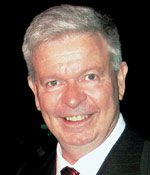
“Having given more than 27 years to CSTA, I can think of no one more deserving than Bill Leask,” says Stephen Denys, CSTA past president and vice-president of sales and marketing for PRIDE Seeds.
Leask started his career as a plant breeder at the University of Guelph and later moved on to be the director of Crop Sesearch and general manager of the Corn and Soybeans Division for Maple Leaf Mills.
In 1983, Leask was appointed to the position of executive vice-president with CSTA. “With Bill at the helm, CSTA became a respected voice for Canada’s seed industry, both nationally and internationally,” Denys says. “His contribution, based on temendous knowledge of plant breeding, seed technology and trade; and of the seed industry itself, led to the development of policies, structures, strategies and above all an operational culture that have benefitted the full composite of stakeholders in the seed sector, in Canada and abrod.”
Leask’s accomplishments are many. A few of them include working to reform Canada’s system on variety registration, providing the foundation of international work around the issue of low-level presence, developing the Authorized Exorter and Importer Programs and establishing the Canadian Seed Institute.
Leask has the distinction of being the longest serving national secretary at the International Seed Federation During his years at ISF, he became a highly respected voice for the Canadian seed industry, Denys says. He represented CSTA at the ISF for 26 years and played important roles on the ISF Trade Rules and Arbitration Committee, the Sustainable Agriculture Committee and the Breeders’ Committee, in addition to a number of ad hoc advisory and study work groups. During his career, Leask facilitiated a number of successful arbitration panels for international trade disputes.
Leask also represented the international seed sector at the United Nation’s Convention on Biological Diversity and the associated Biosafety Protocol; the North American Plant Protection Organization; and the Codex Alimentarius. He was also one of the founding directors of the Seed Association of the Americas.
Even after retiring from CSTA in 2011, Leask continues to work for the seed sector developing applications for the Government’s AgriMarkeing program. He was also a key member of the industry/government working group that oversees the transition to alternate delivery of seed crop inspection.
CSTA Seed Achievement Award
Lorne Hadley
Then, in 2001, Hadley established his own consulting firm, AgGenuity. In doing so, he completed a number of projects for CSTA, ranging from calculating domestic seed sales to identifying inconsistencies between federal and provincial legislation and regulations.
Hadley was also tasked with quantifying the contribution of Canada’s seed industry to the Canadian economy. For the first time, we were able to tell government how important our sector is, explains Brent Derkatch, director of operations and business development for Canterra Seeds. The seed industry and even government departments began regularly quoting Hadley’s figure of $3.95 billion.
When CSTA’s Intellectual Property Committee directed its work group to analyze Canada’s current intellectual property tool box and to propose updated policy for CSTA, Hadley volunteered a great deal of time and was the main athor of CSTA’s current IP text book. CSTA staff report that Hadley has always been a strong resource for them.
“Through the years, Lorne has been sort of an ‘IP PI,’ or PBR policeman, working quietly and with dogged determination to find the bad guys who steal the invention of plant breeders for their own profit,” Derkatch says. “With the support of CPTA’s (Canadian Plant Technology Agency) 18 member companies, he is the ‘shark in the water’ – tracking down PBR infringers and exposing them to their peers.”
But Hadley is not just an enforcer, he’s an educator and mentor. He’s travelled to Canada speaking to farmers and farm groups about intellectual property protection, carefully and thoroughly explaining Plant Breeders’ Rights, what consititutes as non-compliance and the consequences of non-compliance.
“Lorne’s knowledge of intellectual property regimes and his tremendous dedciation to creating an environment that will foster innovation has been invaluableto the members of CPTA and CSTA,” Derkatch says. “His commitment to advancing the interests of Canadian plant breeders and his tireless work to ensure breeders are rewarded for their work more than qualifies him for this award.”
Julie Deering


